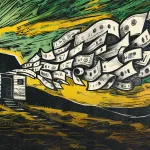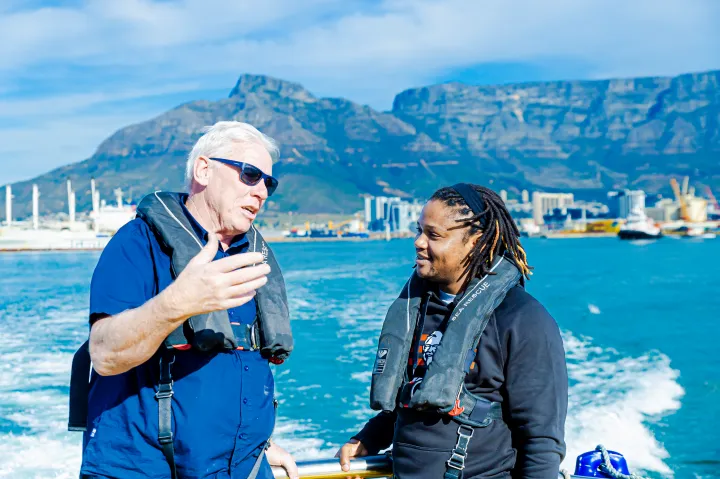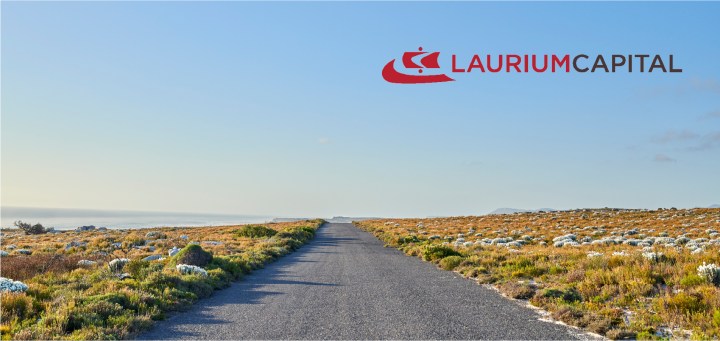Book Excerpt
Days of Zondo: The fight for freedom from corruption

Days of Zondo is a riveting, shocking and at times emotional read that invites the public into the depths of State Capture while giving acknowledgement and catharsis to its victims: the people of South Africa.
On 2 November 2016, then Public Protector Thuli Madonsela ordered a Commission of Inquiry into State Capture. Chaired by Judge Raymond Zondo, the commission began proceedings on 21 August 2018. After three years of staggering testimonies, the breadth and depth of how South Africa was captured has been laid bare for a traumatised nation to comprehend. Award-winning journalist Ferial Haffajee followed the commission every step of the way and set about making sense of it all in her new book, Days of Zondo: The fight for freedom from corruption.
Read an excerpt here.
***
The first reports started emerging on 9 July 2021, as night fell. Orange balls of fire lit the winter sky, and as you panned closer, the arson targets clarified as trucks being set alight. On one, eight cars being transported each caught alight and burnt to a cinder. Over that night, 45 more trucks would go up in flames after their drivers were hijacked and tossed out of the cars – the huge freight carriers packed across the road to block the highway. About R3-billion of goods move daily on the N3 in an estimated 6,000 trucks, according to the Road Freight Association.
By the next morning, the arterial N3 highway between Johannesburg and Durban was closed, and cars stretched for kilometres in both directions. The mayhem had started, and it was organised. It snaked in fire-lines through that weekend, moving into Durban and to the outskirts of Johannesburg. By Saturday 10 July, the western edges of the city’s highways were closed, blocking a key entrance into and out of Johannesburg. The mine hostels just off the highway had erupted into protests calling for the release of former President Jacob Zuma, who had been imprisoned four days before. By nightfall, the entrances into Vosloorus, Sebokeng and Tembisa were burning as protesters put down rocks and set fires.
By Monday 12 July, KwaZulu-Natal and Gauteng were in flames as malls and warehouses were looted for more than 48 unending hours. Many were torched, with ATMs ripped from walls, leaving only the carcass of twisted metal and hanging wiring.
Over the next seven days, South Africa would lose 354 people in an orgy of looting and anarchy livestreamed onto television sets and into the palms of hands as people watched and scrolled in disbelief. Three nights later, President Cyril Ramaphosa gave a national address. On split screens, the looting continued as ordinary men and women entered shopping centres and came out with trolleys laden while he spoke. It was emasculating of his Presidency.
The destruction over seven horrifying nights would end up costing R50-billion, with another R450-billion lost in investment and confidence (according to the South African Property Owners Association). The jobs bloodbath was massive – 150,000 more people joined the unemployment line. Communities turned on each other in Durban, raising the spectre of a race war, particularly in Phoenix, the old working-class Indian township where fear turned into racial profiling and vigilantism.
The chaos was easily sparked from a combustive foundation of inequality, poverty and unemployment, all of which had gone from urgent to crisis as the coronavirus cut its menacing path across South Africa. But it was also sparked by WhatsApp groups, which organised the looting. Groups on the chat apps sent members instructions on roads to be blocked, malls to be attacked and warehouses to be raided. This was an organised insurrection.
And in the WhatsApp groups one address was shared – that of Acting Chief Justice Raymond Zondo. DM/ ML
Days of Zondo is now available directly from the Daily Maverick Shop here. Retail price: R340. We offer free delivery nationwide. The book will be in bookstores across South Africa from Monday 26 September.
Visit Daily Maverick’s home page for more news, analysis and investigations

















We all owe Ferial Haffajee a debt for writing this clear account of the corruption eating away at South Africa. My copy arrived this morning. It looks like a riveting read.